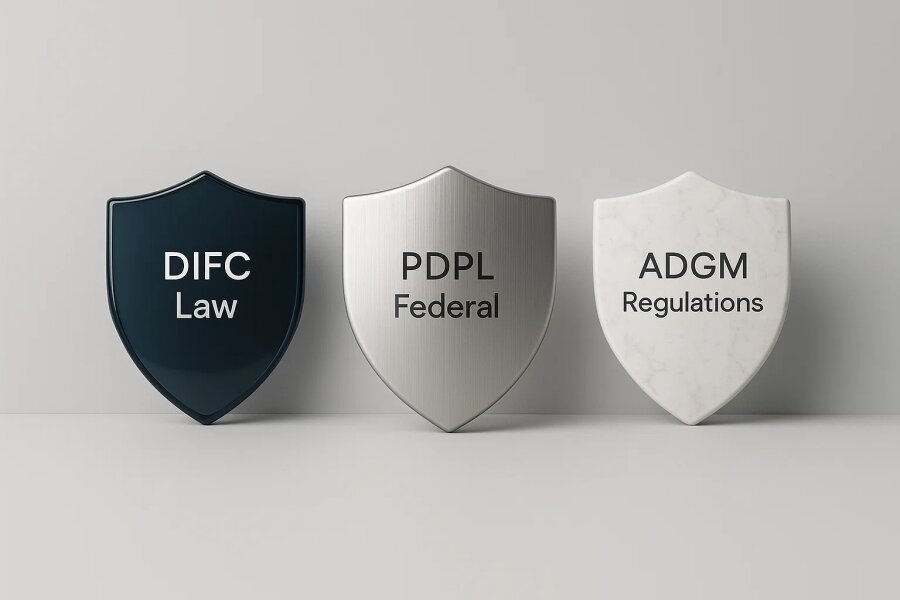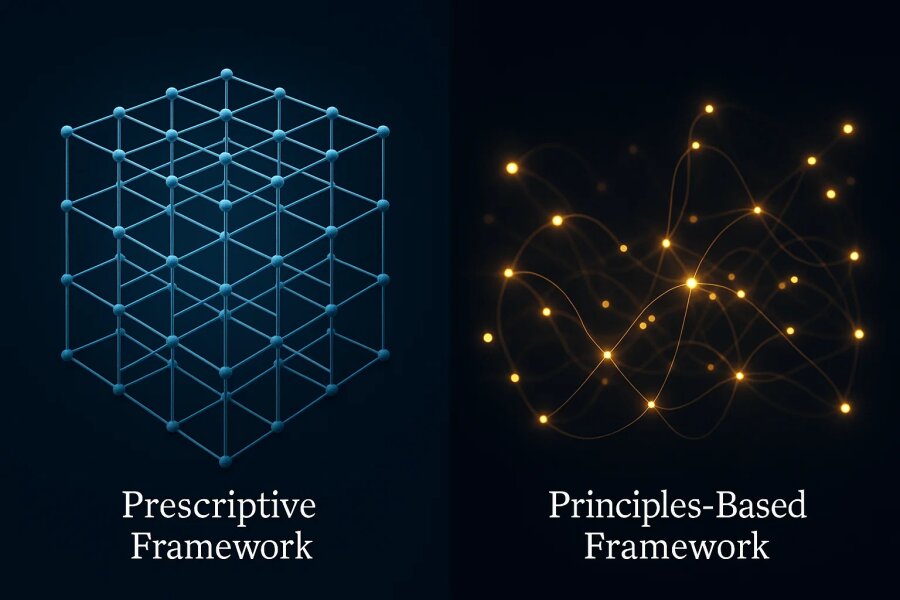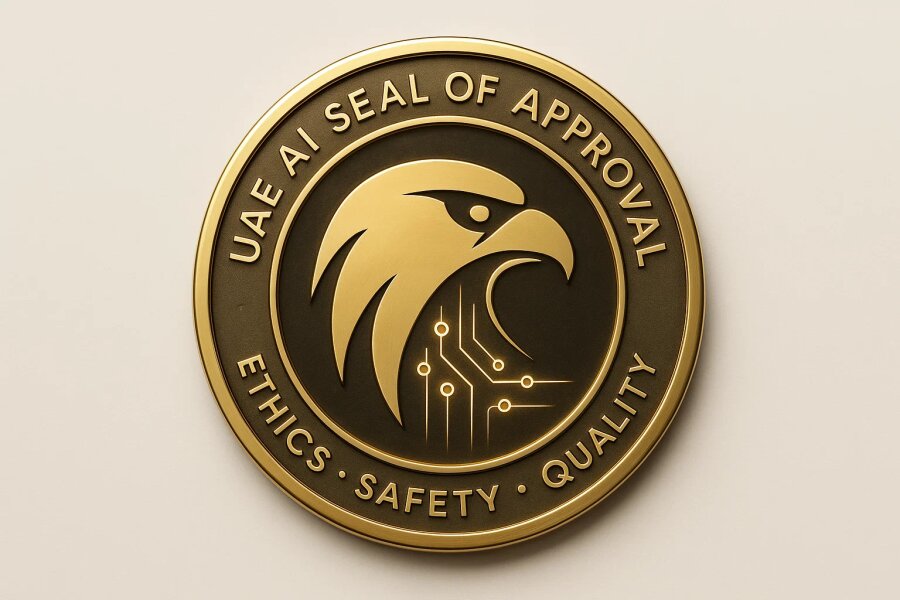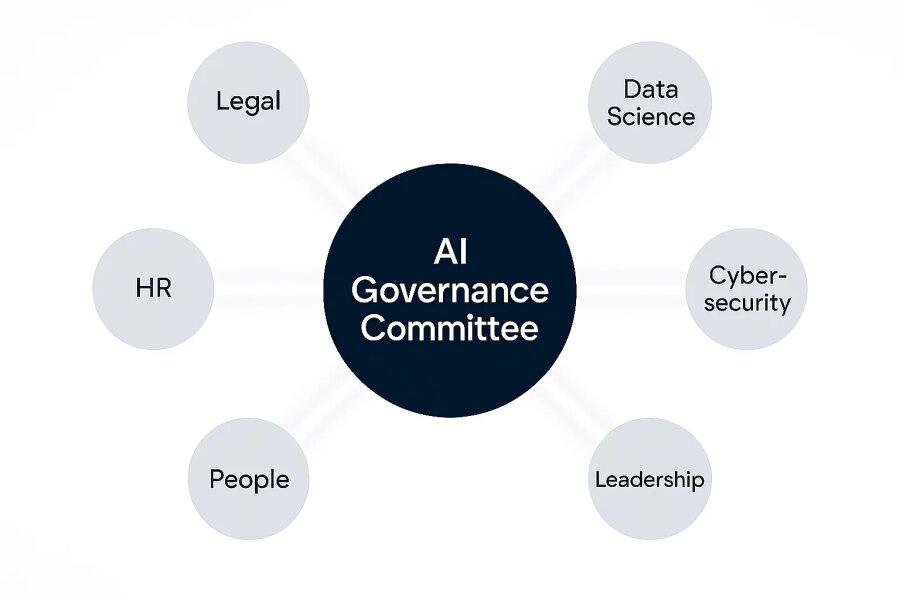Table of Contents
Introduction: AI Ambition and the Compliance Imperative
Understanding the UAE's Tripartite Data Protection Framework
- Federal Data Protection: The PDPL
- DIFC Data Protection Law
- 2.3. ADGM Data Protection Regulations
AI Governance in the UAE: Principles Over Prescriptions
- Key AI Governance Documents
- Sector-Specific Considerations
Critical Compliance Challenges at the AI-Data Privacy Intersection
- Establishing a Lawful Basis for AI Training
- Managing Automated Decision-Making
- Data Minimization and AI Development
- Addressing Algorithmic Bias
Building a Practical Compliance Framework
- Governance Structure and Accountability
- Operational Compliance Measures
- Vendor Management and International Transfers
- Managing Data Subject Rights
Future-Proofing Your Compliance Strategy
Conclusion: Navigating Data Privacy Laws in the UAE
The United Arab Emirates stands at the forefront of technological innovation, pursuing an ambitious vision to become a global artificial intelligence hub while simultaneously establishing sophisticated data protection frameworks. For businesses operating in the UAE, understanding the intersection of AI governance and data privacy laws supports regulatory compliance, and this is fundamental to thriving in this rapidly evolving digital economy.
With the UAE National Strategy for Artificial Intelligence 2031 targeting AED 335 billion in economic growth and the implementation of comprehensive data protection regulations, companies face both tremendous opportunities and complex compliance challenges. This guide explores how businesses can navigate the UAE's unique regulatory landscape while harnessing the power of AI responsibly.

Understanding the UAE's Tripartite Data Protection Framework
One of the most critical aspects of data privacy laws in the UAE is the existence of three distinct regulatory regimes, each with its own scope, regulator, and enforcement mechanisms. This tripartite structure means that your compliance obligations depend entirely on where your business is established within the UAE.

Federal Data Protection: The PDPL
The Federal Decree-Law No. 45 of 2021 on the Protection of Personal Data (PDPL) governs mainland UAE businesses and represents the country's first comprehensive federal data protection law. Coming into force on January 2, 2022, the PDPL applies to all data controllers and processors established in mainland UAE, as well as those outside the UAE who process personal data of UAE residents.
However, businesses should note a crucial caveat: as of September 2025, the PDPL's Executive Regulations have not yet been issued. These regulations are expected to clarify critical operational details including breach notification timelines, mandatory Data Protection Officer appointment criteria, and specific penalty schedules. This regulatory gap creates uncertainty for mainland businesses, though compliance with the existing framework remains essential.
DIFC Data Protection Law
The Dubai International Financial Centre operates under its own Data Protection Law No. 5 of 2020, which closely mirrors the European Union's GDPR. The DIFC regime is currently the most mature and actively enforced of the three frameworks, having undergone amendments in 2025 that introduced concepts like private rights of action for data subjects. The DIFC Commissioner of Data Protection oversees enforcement, with significant penalties for non-compliance reaching up to $50,000 for specific violations.
ADGM Data Protection Regulations
Abu Dhabi Global Market's Data Protection Regulations 2021 provide another GDPR-aligned framework for businesses within this financial free zone. The ADGM Office of Data Protection can impose substantial administrative fines, potentially reaching $28 million for serious breaches. Like the DIFC, ADGM has established a sophisticated enforcement mechanism that businesses cannot afford to ignore.
For companies requiring expert guidance on navigating these complex frameworks, specialized data privacy lawyers in Dubai can provide essential support in ensuring compliance across jurisdictions.
AI Governance in the UAE: Principles Over Prescriptions
While data privacy laws in the UAE provide the legal foundation, AI governance in the UAE takes a more flexible, principles-based approach. Rather than implementing a rigid "AI Act" similar to the European Union, the UAE has established a co-regulatory framework that combines binding data protection laws with ethical guidelines and national strategies.

Key AI Governance Documents
The Charter for the Development and Use of AI issued in June 2024 outlines twelve core principles for ethical AI implementation. These principles emphasize human-centricity, safety, fairness, transparency, accountability, and human oversight. Adherence to these principles has become the expected standard of care for businesses deploying AI systems.
The UAE AI Seal of Approval serves as a powerful differentiator for companies whose AI technologies meet high standards of quality, ethics, and safety. Achieving this certification signals to the market that your organization's AI governance aligns with national expectations and best practices.

Sector-Specific Considerations
Certain industries face additional regulatory layers when implementing AI solutions. The financial services sector, regulated by entities like the Central Bank of the UAE, DFSA, and FSRA, must comply with supplementary data protection provisions. Healthcare organizations processing sensitive medical data must navigate both general data protection laws and Federal Law No. 2 of 2019 concerning ICT use in health fields.
Dubai's Law No. 9 of 2023 establishing a framework for autonomous vehicles demonstrates how the UAE creates specific regulations for high-risk AI applications while maintaining broader flexibility elsewhere. This targeted approach allows innovation while ensuring appropriate safeguards for critical applications.
Critical Compliance Challenges at the AI-Data Privacy Intersection
Establishing Lawful Basis for AI Training
Modern AI models require vast datasets for training, making traditional consent-based processing often impractical. Organizations must identify alternative lawful bases for this large-scale data processing. In the DIFC and ADGM, the "legitimate interests" basis provides a viable pathway, though it requires conducting and documenting a Legitimate Interests Assessment.
The federal PDPL's position on legitimate interests remains somewhat ambiguous pending the Executive Regulations. However, businesses may rely on processing necessary for "archival purposes or for scientific, historical and statistical studies" or public interest grounds where appropriate.
Managing Automated Decision-Making
All three regulatory regimes grant individuals rights regarding automated decision-making with significant effects. The PDPL's Article 18 allows data subjects to object to solely automated decisions, while the DIFC and ADGM frameworks require implementing safeguards including human intervention capabilities, the right to express views, and the ability to contest decisions.
Organizations using AI in legal tech in the UAE must ensure transparency about AI's role in decision-making processes. This doesn't mean revealing proprietary algorithms but requires clear explanations of the main factors driving decisions and the data utilized.
Data Minimization and AI Development
The principle of data minimization creates tension with AI development practices that traditionally favor larger datasets. PDPL UAE compliance requires organizations to apply minimization principles throughout the AI lifecycle. This includes using synthetic data where feasible, applying pseudonymization techniques, and ensuring outputs don't unnecessarily reveal personal information.
Addressing Algorithmic Bias
While "algorithmic bias" doesn't explicitly appear in data protection laws, the requirement to process data "fairly" is central to all three regimes. AI systems producing discriminatory outcomes could violate not only data protection laws but also Federal Law No. 43 of 2023 on Combating Discrimination, which imposes severe penalties for discriminatory practices.
Organizations should implement comprehensive bias mitigation programs including diverse training data, regular auditing against different demographic groups, and documented impact assessments addressing unfair or discriminatory risks.
Building a Practical Compliance Framework
Governance Structure and Accountability
Establishing clear governance begins with appointing appropriate officers. Where required, organizations must appoint a Data Protection Officer with necessary expertise and independence. Companies using AI for high-risk processing in the DIFC must also appoint an Autonomous Systems Officer. Even where not mandatory, designating leadership for data privacy and AI governance demonstrates commitment to compliance.
Creating a cross-functional AI Governance Committee ensures proper oversight of new projects and alignment with ethical principles. This committee should develop and maintain an Acceptable Use Policy for AI tools, specifying approved technologies, permissible use cases, and internal approval processes.

Operational Compliance Measures
Organizations must maintain comprehensive Records of Processing Activities that specifically detail AI systems, including data types, purposes, sharing arrangements, and lawful bases. Integrating compliance checkpoints into project lifecycles ensures necessary assessments occur before deployment rather than as afterthoughts.
For AI systems in high-stakes decision-making, documented human oversight processes are essential. Implementing clear review mechanisms ensures qualified humans assess AI-generated outputs before significant individual impacts occur.
Vendor Management and International Transfers
Using global AI platforms often involves cross-border data transfers, requiring careful attention to transfer mechanisms. Organizations must conduct Transfer Impact Assessments before engaging non-UAE providers, verifying legal bases for transfers and assessing destination country practices.
Contracts with AI providers must include robust data protection addendums defining permitted uses, confidentiality obligations, audit rights, and breach notification requirements. For businesses needing assistance with complex vendor agreements, data privacy lawyers in Abu Dhabi can ensure contracts meet regulatory requirements.
Managing Data Subject Rights
Organizations must update procedures for handling data subject requests in AI contexts. This includes processes for explaining automated decisions and facilitating human intervention rights. Incident response plans require updates to address AI-specific security incidents like model poisoning or inadvertent personal data disclosure by generative models.
Future-Proofing Your Compliance Strategy
The regulatory landscape continues evolving rapidly. Organizations should actively monitor developments including the anticipated PDPL Executive Regulations and emerging sector-specific guidance. The UAE's Regulatory Intelligence Ecosystem, which will use AI to analyze and recommend legislation, signals continued regulatory innovation.
Investing in continuous training ensures employees understand data privacy responsibilities and responsible AI use. Regular, role-based education builds the compliance culture essential for preventing breaches and maintaining trust.
Rather than creating isolated compliance silos, organizations should develop unified governance frameworks addressing data privacy, AI ethics, and emerging regulations holistically. This integrated approach creates operational efficiencies while providing consistent, defensible compliance postures.
Navigating Data Privacy Laws in the UAE
Successfully navigating AI governance in the UAE and data privacy laws requires understanding the complex interplay between multiple regulatory frameworks and ethical principles. The UAE's sophisticated approach balances innovation encouragement with robust protection standards, creating opportunities for businesses that demonstrate responsible stewardship.
Organizations that build comprehensive, adaptable compliance frameworks today position themselves not only to avoid regulatory penalties but also to earn consumer and regulator trust. As the UAE continues its journey toward becoming a global AI leader, businesses that align with national principles while maintaining strong data protection practices will find themselves best positioned to thrive in this ambitious digital economy.
The convergence of AI innovation and data protection isn't a compliance burden but a competitive advantage for organizations willing to invest in proper governance. By treating privacy and ethics as core business functions rather than regulatory checkboxes, companies can confidently innovate while building the trust essential for long-term success in the UAE.


